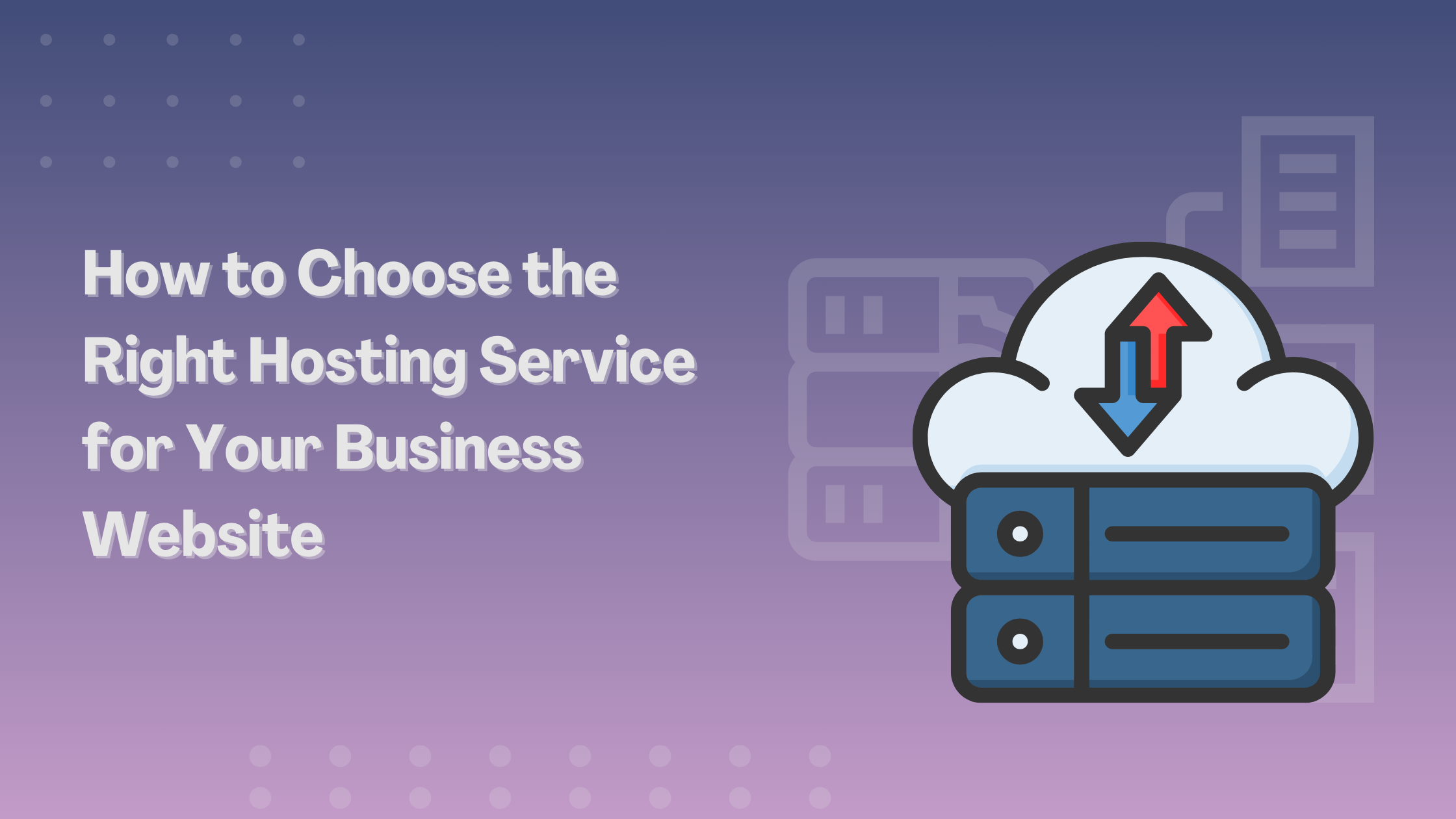How to Choose the Right Hosting Service for Your Business Website : A Comprehensive Guide
Choosing the right web hosting service for your business website is crucial for ensuring its accessibility, security, and performance. With numerous options available, it can be overwhelming to decide which one to select. Here are key factors to consider when selecting a web hosting service for your business website:

Table of Contents
Understand Your Website's Needs
Before diving into the specifics of hosting services, it’s essential to understand what your website requires. Here are some key factors to consider:
1. Traffic Expectations
Estimate the amount of traffic you expect to receive. If you anticipate high traffic volumes, you’ll need a hosting service that can handle significant loads without slowing down or crashing.
2. Technical Requirements
Consider the technical requirements of your website. This includes the need for specific software, databases, and applications. Make sure the hosting service supports these requirements.
Types of Hosting Services
Understanding the various types of hosting services is crucial in making an informed decision. Here’s a breakdown:
1. Shared Hosting
In shared hosting, multiple websites share the same server resources. It’s an affordable option and suitable for small to medium-sized websites with moderate traffic. However, performance can be affected by other sites on the same server.
2. VPS Hosting
Virtual Private Server (VPS) hosting provides a dedicated portion of a server’s resources to your website. It offers more control and better performance than shared hosting, making it a good choice for growing websites with higher traffic.
3. Dedicated Hosting
With dedicated hosting, you have an entire server dedicated to your website. This option provides the highest level of performance, security, and control. It’s ideal for large businesses and websites with high traffic volumes, but it comes at a higher cost.
4. Cloud Hosting
Cloud hosting uses a network of virtual servers to host your website. It offers scalability and reliability, as your site can draw resources from multiple servers. This makes it an excellent choice for websites with variable or high traffic.
5. Managed Hosting
Managed hosting is a service where the hosting provider handles the technical aspects of running the server, such as maintenance, security, and backups. This allows you to focus on your business while the provider takes care of the hosting environment.
Key Features to Look For
When evaluating hosting services, consider the following features to ensure you choose the right one for your business:
1. Reliability and Uptime
Look for a hosting service with a strong reputation for reliability and high uptime (99.9% or higher), this ensures that your website remains online and available to users at all times. Uptime is a critical factor in ensuring your website remains accessible to visitors. Downtime can lead to lost revenue and a poor user experience.
2. Speed and Performance
Choose a hosting service with fast server response times and performance optimization features. A fast-loading website is essential for user experience and search engine optimization. Choose a provider that prioritizes fast-loading websites and utilizes solid-state drives (SSDs) for improved data retrieval and content delivery networks (CDNs) to optimize speed and reduce latency
3. Scalability
Ensure the hosting service can grow with your business. It should offer easy upgrades to higher plans as your website’s traffic and resource needs increase.
4. Security
Security is paramount for any website. Look for hosting services that offer robust security features, including SSL certificates, regular backups, firewalls, and malware scanning.
5. Customer Support
Reliable customer support is essential. Choose a hosting provider that offers 24/7 support through multiple channels, such as chat, email, and phone.
6. Pricing
While pricing shouldn’t be the only factor, it’s important to choose a hosting service that fits your budget. Compare the features and performance offered at different price points to find the best value.
7. Control Panel and Usability
A user-friendly control panel (like cPanel or Plesk) makes managing your hosting account easier. Ensure the hosting provider offers a control panel that suits your technical expertise.
Conclusion: Choosing the right hosting service is a crucial step in creating a successful business website. By understanding your needs and evaluating your options carefully, you can find a hosting service that provides the reliability, performance, and support necessary for your website to thrive.
References:
- “How to Choose a Web Host” by Rock Content.
- “10 Tips for Choosing the Right Web Hosting Company” by Business.com.
- “How to Choose a Web Hosting Service” by TechRadar.
- “11 Tips for Choosing the Best Web Hosting Service (Updated)” by Diggity Marketing.
Share the Post: